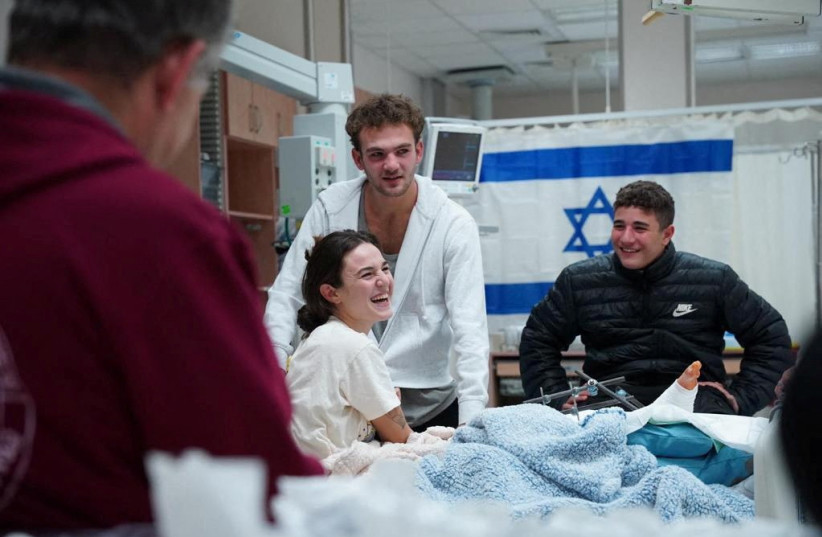Sheba Medical Center and Ichilov Hospital have spent recent weeks holding discussions to ensure they are fully prepared to receive hostages released from Hamas captivity.
Both hospitals, which have experience handling such cases, will operate as they have in the past—with utmost sensitivity, respect for the returnees' preferences, and full privacy for reunions with family members and loved ones.
Under Health Ministry protocols, hostages are treated in designated units. Each is assigned a private room and is accompanied by a nurse, doctor, and social worker.
The initial stage involves a complete physical examination, including a head-to-toe check and an evaluation of any injuries or bruises. Blood tests are conducted to detect infections, hemoglobin levels (to identify iron deficiency or bleeding), platelet counts, and other indicators of nutritional deficiencies, electrolyte imbalances, and liver and kidney function. Vitamin D levels, which may drop after extended periods in darkness, are also tested.
Due to the severe injuries inflicted during the abduction and the harsh conditions endured in Hamas tunnels, all hostages undergo detailed orthopedic evaluations, including X-rays and CT scans. Those with chronic conditions will receive additional consultations with specialists, who may order follow-up tests if necessary. Any medications missed during captivity will be restored to their regimen.

Medical evaluations include discreet assessments for possible sexual assault, which may involve a gynecological examination and sample collection if necessary. Pregnancy tests are also administered for female hostages.
Monitoring through every stage
Throughout the process, a hospital social worker monitors each hostage for signs of emotional distress. When needed, a psychiatrist or psychologist is brought in for additional assessment. Emotional and psychological support continues throughout hospitalization and after discharge.
Families are encouraged to bring personal items—such as clothing, books, shoes, and familiar foods—to ease the hostages' reintegration into daily life.
The public continues to hope for the safe return of all hostages and wishes them a full recovery.
